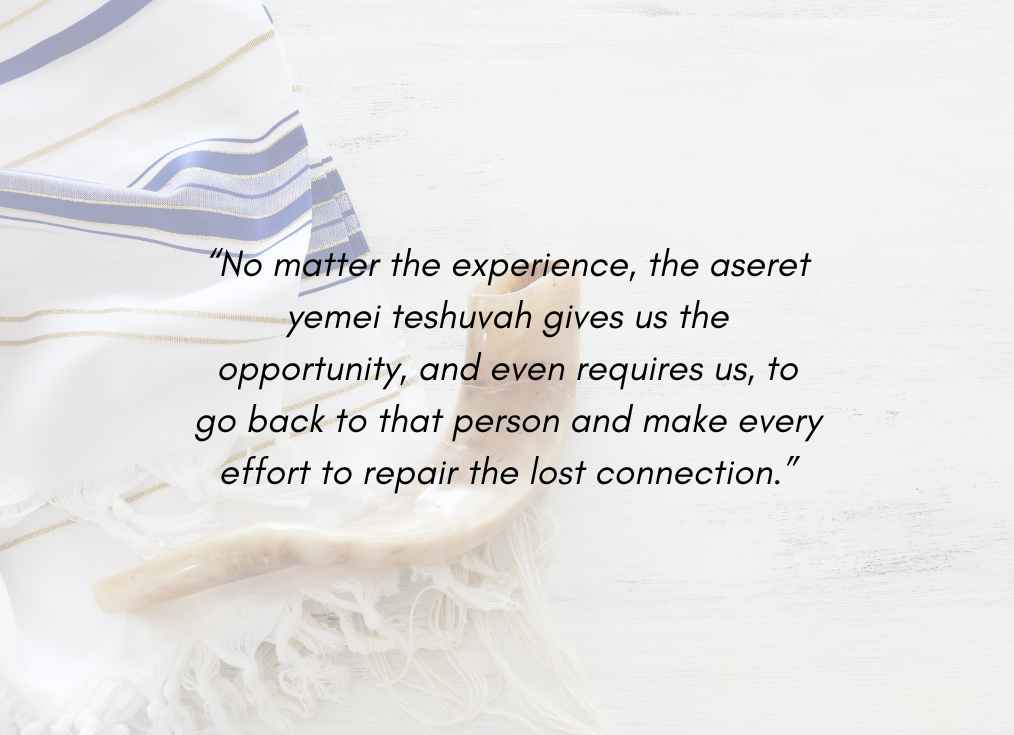Aseret Yemei Teshuvah

September 22, 2023 / 7 Tishrei 5784
In this week’s Torah portion, Haazinu, we read in Deuteronomy 32:7 a verse that embodies the essence of our Jewish teachings, highlighting that the past is a wellspring of insight and how the lessons of history serve as guiding stars for our future. “Remember the days of old; consider the generations long past. Ask your father, and he will tell you, your elders, and they will inform you.”
It is this seemingly repetitive verse that forms the foundation for George Santayana’s famous warning, “Those who cannot remember the past are condemned to repeat it.”
The connection between these two teachings is profound. Understanding from where we have come so that we can find a good path to where we need to go underscores the importance that we preserve our Jewish heritage so that our children will have something to pass on to their children down the road. We are reminded that by studying the trials and triumphs of our ancestors, we gain the wisdom and moral compass to find the vibrant future for which we so desire.
…
It is no coincidence that we are reminded of this life lesson during our Ten Days of Repentance (aseret yemei teshuvah), the time between Rosh Hashanah and Yom Kippur, our time to reflect on our actions, choices, and their impact on others over the past year.
How many times have we believed that we have lost something only to retrace our steps in order to go back and locate that “lost” item? So too, are our lost relationships. Maybe we neglected a friend in their time of need? Maybe we replied in an abrupt or impatient manner that offended a loved one? Or maybe we lacked confidence or trust in another exactly when they needed us most to believe in them? No matter the experience, the aseret yemei teshuvah gives us the opportunity, and even requires us, to go back to that person and make every effort to repair the lost connection.
But the aseret yemei teshuvah is not only a time for making those final attempts to repair our relationships with one another, it is also a time to repair our relationship with Gd. How honest are we willing to be with ourselves? Every day we wake up in hopes of being the best version of ourselves we can be. But what does that mean for our Jewish identity? Are we investing in our faith like we do our general education, our work life, our social experiences, or every other aspect of our secular world?
We are not perfect, and Gd does not expect perfection of us. For us to live up to our potential, however, we need to embrace our frailty and know that we can always repair any demonstrations of those imperfections.
The Ten Days of Repentance serve as an annual reminder of the interconnectedness of the past, present, and future. These unique days encourage a deliberate examination of our life, actions, and moral compass, rooted in the wisdom of Jewish tradition and the broader lessons from our shared history. It is through this introspection and commitment to change that we can emerge from this sacred period with a renewed sense of purpose, embodying both the message from parshat Haazinu as well as the spirit of Santayana’s quote.
With only a few days left before Yom Kippur, may we all be sealed in the Book of Life because we have done all we can to repair those broken relationships with our loved ones, our neighbors, our colleagues, and Gd. Because we are…
Shabbat Shalom and gmar chatimah tovah,

